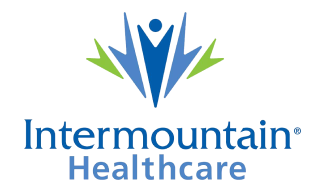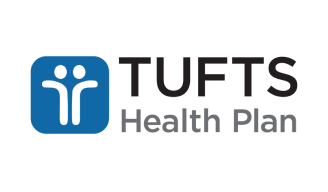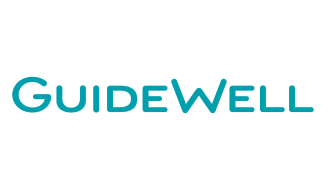
Dana Point, California, United States
Laguna Shores
Verified
Verified
This provider’s information has been quality-checked by Recovery.com’s Research Team for accuracy and completeness, including center verification through appropriate third-party organizations.
Joint Commission Accredited
The Joint Commission accreditation is a voluntary, objective process that evaluates and accredits healthcare organizations (like treatment centers) based on performance standards designed to improve quality and safety for patients. To be accredited means the treatment center has been found to meet the Commission's standards for quality and safety in patient care.
Provider's Policy
It can be difficult to contact your insurance provider to figure out what your policy will (or will not) cover before attending rehab. We take that work off your plate completely and handle the (tedious) process of verifying insurance benefits for you. You’ll know upfront what your options are, and there will be absolutely no surprise out-of-pocket expenses. Laguna Shores does not accept Medicaid or Medicare.
Estimated Cash Pay Rate
The cost listed here ($45,000-$60,000) is an estimate of the cash pay price. Center pricing can vary based on program and length of stay. Contact the center for more information. Recovery.com strives for price transparency so you can make an informed decision.
Highlights from the Center
Highlights
These highlights are provided by and paid for by the center.
Medically Assisted Detox
Pet Friendly
Beach Access
Tech Friendly
About Laguna Shores
Laguna Shores Recovery is a family-owned treatment center offering detox and residential care for only 6 clients at a time in a serene, coastal mansion. They provide highly individualized care for substance use disorders and co-occurring mental health concerns while surrounding clients with love and support. With an emphasis on maintaining success after treatment, they help clients rediscover what matters most to them and build lives rooted in presence, purpose, and inner strength.
Transform from the Inside Out with Diverse Therapies
Laguna Shores equips clients with the skills and support for meaningful transformation. In a safe, fun, and comfortable atmosphere, clients engage in evidence-based therapies that unearth the authentic self, healing underlying causes of addiction. Clients receive two weekly 1:1 therapy sessions with an open-door policy for additional sessions. Yoga, nutrition, mindfulness, art, exercise, equine, and adventure therapies ensure well-rounded healing. Both 12-Step and non-12-Step options are available.
Live in Luxury While Achieving Results
Laguna Shores’ mansion sits atop the cliffs of Dana Point and features floor-to-ceiling windows with views of the ocean, marina, and panoramic sunsets. Clients stay in well-appointed private or shared rooms with full or queen beds, enjoy nourishing meals from a private chef, and unwind in inviting common areas both indoors and outdoors. The coastal location provides easy access for weekend outings to beaches, museums, professional sports games, and more.
Leave Treatment with a Clear Path Forward
Laguna Shores ensures every client leaves with a personalized plan for continued care. They coordinate step-down outpatient options locally or near the client’s home, as well as support for housing, legal, healthcare, and social needs. Alumni programs and support groups provide ongoing connection and inspiration, while continued counseling and substance monitoring help clients sustain their progress and lead purposeful, joyful lives beyond treatment.
Read More

Insurance Accepted
Provider's Policy:It can be difficult to contact your insurance provider to figure out what your policy will (or will not) cover before attending rehab. We take that work off your plate completely and handle the (tedious) process of verifying insurance benefits for you. You’ll know upfront what your options are, and there will be absolutely no surprise out-of-pocket expenses. Laguna Shores does not accept Medicaid or Medicare.
Understand Brain Activity for Targeted Healing
Laguna Shores offers brain mapping to identify specific areas of imbalance in clients’ brain activity. Using advanced technology, they create detailed visual representations highlighting patterns linked to anxiety, depression, addiction, and other disorders. This precise assessment helps the team cater treatment plans to each client, helping improve emotional regulation, cognitive function, and recovery outcomes.
Reduce Trial and Error with Medications
Laguna Shores offers GeneSight Psychotropic testing, a genetic test using a quick cheek swab. The comprehensive report reveals how a client’s genes affect medication outcomes for depression, anxiety, ADHD, and other mental health conditions—helping providers identify effective medications, minimize side effects, and avoid unnecessary medication trials.
Develop Essential Life Skills
Laguna Shores’ Adulting 101 class helps clients develop the capacities they need to find success in a life of sobriety. Sessions cover topics including employment, budgeting, home maintenance, personal hygiene, self-care, meal prep, and establishing a routine. Clients learn how to set themselves up for reduced stress and greater success across all of life.
Balance Recovery and Career Priorities
Laguna Shores supports executive clients by providing a private, dedicated office space to stay connected to their business responsibilities during treatment. Clients engage in five hours of daily treatment but can manage work obligations by waking earlier, working during lunch breaks, or resuming work activities comfortably later in the day, without compromising their recovery process.

Center Overview
Estimated Cash Pay Rate
Older Adults
Addiction and mental health treatment caters to adults 55+ and the age-specific challenges that can come with recovery, wellness, and overall happiness.
Executives
Executive treatment programs typically directly support the needs of people who manage businesses and may provide flexible schedules and office space to allow work during treatment.
Young Adults
Emerging adults ages 18-25 receive treatment catered to the unique challenges of early adulthood, like college, risky behaviors, and vocational struggles.
LGBTQ+
Addiction and mental illnesses in the LGBTQ+ community must be treated with an affirming, safe, and relevant approach, which many centers provide.
Men and Women
Men and women attend treatment for addiction in a co-ed setting, going to therapy groups together to share experiences, struggles, and successes.
Midlife Adults
For adults ages 40+, treatment shifts to focus on the unique challenges, blocks, and risk factors of their age group, and unites peers in a similar community.
Mild Disabilities
Adults with mild physical or intellectual disabilities receive treatment catered to their specific needs in a safe and clinically supportive environment.
Pregnant Women
Addiction and mental health treatment meets the clinical and psychological needs of pregnant women, ensuring they receive optimal care in all areas.
Professionals
Busy, high-ranking professionals get the personalized treatment they need with greater accommodations for work, privacy, and outside communication.

Treatment Focus
This center treats primary substance use disorders and co-occurring mental health conditions. Your treatment plan addresses each condition at once with personalized, compassionate care for comprehensive healing.
Treatment
Specializations
Alcohol
Using alcohol as a coping mechanism, or drinking excessively throughout the week, signals an alcohol use disorder.
Detox
Detox fully and safely removes toxic substances from the body, allowing the next steps in treatment to begin with a clean slate.
Co-Occurring Disorders
A person with multiple mental health diagnoses, such as addiction and depression, has co-occurring disorders also called dual diagnosis.
Drug Addiction
Drug addiction is the excessive and repetitive use of substances, despite harmful consequences to a person's life, health, and relationships.
Executives
Executive treatment programs typically directly support the needs of people who manage businesses and may provide flexible schedules and office space to allow work during treatment.
Methamphetamine
Methamphetamine, or meth, increases energy, agitation, and paranoia. Long-term use can result in severe physical and mental health issues.
Opioids
Opioids produce pain-relief and euphoria, which can lead to addiction. This class of drugs includes prescribed medication and the illegal drug heroin.
Professionals
Busy, high-ranking professionals get the personalized treatment they need with greater accommodations for work, privacy, and outside communication.
Treatment Services
Detox
Detox fully and safely removes toxic substances from the body, allowing the next steps in treatment to begin with a clean slate.
Residential
In a residential rehab program, patients live onsite, with access to daily treatment and 24-hour care. An average stay is 30-90 days.
Approaches
Evidence-Based
A combination of scientifically rooted therapies and treatments make up evidence-based care, defined by their measured and proven results.
Holistic
A non-medicinal, wellness-focused approach that aims to align the mind, body, and spirit for deep and lasting healing.
Non 12 Step
Non-12-Step philosophies veer from the spiritual focus of the 12-Steps and instead treat the disease of addiction with holistic or secular modalities.
Personalized Treatment
The specific needs, histories, and conditions of individual patients receive personalized, highly relevant care throughout their recovery journey.
Twelve Step
Incorporating spirituality, community, and responsibility, 12-Step philosophies prioritize the guidance of a Higher Power and a continuation of 12-Step practices.
Therapies
1-on-1 Counseling
Patient and therapist meet 1-on-1 to work through difficult emotions and behavioral challenges in a personal, private setting.
Meditation & Mindfulness
A practiced state of mind that brings patients to the present. It allows them to become fully aware of themselves, their feelings, and the present moment.
Trauma-Specific Therapy
This form of talk therapy addresses any childhood trauma at the root of a patient's current diagnosis.
Mindfulness Therapy
This ancient practice can be mental, emotional, and even spiritual. In meditation, you focus your attention on the present moment without judgement.
Adventure Therapy
This experiential approach uses the physical and emotional challenges of outdoor activities as tools for personal growth.
Animal Therapy
Animals can inspire trust and self-worth. In this experiential therapy, guided interactions are used to improve social skills and emotion regulation.
Art Therapy
Visual art invites patients to examine the emotions within their work, focusing on the process of creativity and its gentle therapeutic power.
Experiential Therapy
With this approach, patients heal by doing. Therapists help patients process difficult emotions to speak, using guided activities like art or dance.
Conditions We Treat
Grief and Loss
Grief is a natural reaction to loss, but severe grief can interfere with your ability to function. You can get treatment for this condition.
Personality Disorders
Personality disorders destabilize the way a person thinks, feels, and behaves. If untreated, they can undermine relationships and lead to severe distress.
ADHD, ADD
ADHD is a common mental health condition caused by dopamine imbalance. Common symptoms include inattention, hyperactivitiy, and impulsivity.
Anger
Although anger itself isn't a disorder, it can get out of hand. If this feeling interferes with your relationships and daily functioning, treatment can help.
Anxiety
Anxiety is a common mental health condition that can include excessive worry, panic attacks, physical tension, and increased blood pressure.
Bipolar
This mental health condition is characterized by extreme mood swings between depression, mania, and remission.
Burnout
Burnout entails mental and physical exhaustion, and leads to a severe lack of fulfillment. This condition is often caused by overwork.
Chronic Pain Management
Long-term physical pain can have an affect on mental health. Without support, it can also impact your daily life and even lead to addiction.
Codependency
Codependency is a pattern of emotional dependence and controlling behavior. It's most common among people with addicted loved ones.
Depression
Symptoms of depression may include fatigue, a sense of numbness, and loss of interest in activities. This condition can range from mild to severe.
Substances We Treat
Alcohol
Using alcohol as a coping mechanism, or drinking excessively throughout the week, signals an alcohol use disorder.
Benzodiazepines
Benzodiazepines are prescribed to treat anxiety and sleep issues. They are highly habit forming, and their abuse can cause mood changes and poor judgement.
Chronic Relapse
Consistent relapse occurs repeatedly, after partial recovery from addiction. This condition requires long-term treatment.
Co-Occurring Disorders
A person with multiple mental health diagnoses, such as addiction and depression, has co-occurring disorders also called dual diagnosis.
Cocaine
Cocaine is a stimulant with euphoric effects. Agitation, muscle ticks, psychosis, and heart issues are common symptoms of cocaine abuse.
Drug Addiction
Drug addiction is the excessive and repetitive use of substances, despite harmful consequences to a person's life, health, and relationships.
Ecstasy
Ecstasy is a stimulant that causes intense euphoria and heightened awareness. Abuse of this drug can trigger depression, insomnia, and memory problems.
Heroin
Heroin is a highly addictive and illegal opioid. It can cause insomnia, collapsed veins, heart issues, and additional mental health issues.
Psychedelics
Hallucinogenic drugs—like LSD—cause euphoria and increased sensory experiences. When abused, they can lead to depression and psychosis.
Aftercare
Experience
Personal Amenities
Amenities
Special Considerations
Center Pets
Addiction and mental health facilities with pets allow patients to interact with friendly dogs, cats, horses, and in some cases, even dolphins.
Clients can bring their own pet(s)
For greater comfort and healing, pet-friendly treatment centers welcome dogs and animal companions to stay with their owners while they attend treatment.
Pet Friendly
For greater comfort and healing, pet-friendly treatment centers welcome dogs and animal companions to stay with their owners while they attend treatment.
Executive Program
Addiction and mental health treatment for executives typically involves high discretion, greater technology access, and more private, 1-on-1 care.
Flexible technology policies
Centers with flexible technology policies allow professionals to stay in touch with work and give patients a greater sense of connection and normalcy.
Activities
Off-Site Activities
Off-Site Amenities
Smoking and Vaping Policy
Professional Staff

Kat Sorensen
CEO
B.A.

Matthew Beck
Clinical Director
B.A., M.A., LMFT

Heather Deranja
Nutritionist
RDN

John Hunter
Program Administrator
View More Team Members
Learn more about Laguna Shores
Testimonial
I had a really great experience at Laguna Shores. What could have been a miserable experience was made to be the opposite thanks to the wonderful, caring, and thoughtful staff. I would 100% recommend this place to anyone struggling with addiction and looking to turn their life around. Very grateful for this place and everything I learned while there!
Anders
We love hearing about your treatment experience
Help individuals and families seeking treatment by sharing your first-hand experience with this treatment provider. Review Guidelines.


















































